Metafort G2 CP Tablet
$18.00 – $36.00
| Pack Size | Price | Price / Unit | Quantity | |
|---|---|---|---|---|
| 60 Tablets | $18.00 | $0.30/ unit | ||
| 120 Tablets | $30.00 | $0.25/ unit | ||
| 180 Tablets | $36.00 | $0.20/ unit |
Want to order in bulk / B2B price ? | Send Inquiry |


| SKU | 11203 |
| Manufacturer | Eris Lifesciences Ltd |
| Categories | Diabetes |
| Delivery Time | 10 - 14 Working Days |
| Strength | 2mg |
Introduction to Metafort G2 CP Tablet
Metafort G2 CP Tablet is a combination medication used primarily in the management of type 2 Diabetes. It contains two active ingredients: metformin and glimepiride. Metformin is a biguanide that helps to lower blood sugar levels by improving insulin sensitivity and reducing glucose production in the liver. Glimepiride is a sulfonylurea that stimulates the pancreas to release more insulin, which helps to lower blood sugar levels.
The combination of these two medications provides a dual approach to controlling blood glucose levels. Metformin addresses insulin resistance, which is a common issue in type 2 diabetes, while glimepiride increases insulin secretion from the pancreas. This combined effect helps to achieve better overall blood sugar control.
Metafort G2 CP Tablet is usually taken orally, with the dosage adjusted based on individual blood sugar levels and treatment response. It is often prescribed when metformin alone is insufficient to control blood glucose levels or when a combined approach is deemed more effective.
Uses of Metafort G2 CP Tablets
Metafort G2 CP Tablet is used for the following purposes:
- Management of Type 2 Diabetes
- Dual-Action Blood Sugar Control
- Improving Glycemic Control
- Reduction of Hemoglobin A1c Levels
- Complementary to Lifestyle Changes
How Does Metafort G2 CP Works?
Take Metafort as advised by your physician. Swallow METAFORT with a glass of water. Do not crush or chew the medicine. Your doctor will decide the correct dose and duration for you depending upon your age, body weight and disease condition. Do not stop taking METAFORT without informing your doctor.
Side Effects of Metafort G2 CP
Common Side Effects
- Gastrointestinal Issues
- Abdominal Discomfort
- Dizziness
- Headache
- Fatigue
- Hypoglycemia Symptoms
- Weight Changes
Serious Side Effects
- Lactic Acidosis
- Severe Hypoglycemia
- Allergic Reactions
- Kidney Problems
- Severe Gastrointestinal Issues
- Hepatic Dysfunction
- Severe Dermatological Reactions
Dosages of Metafort G2 CP Tablets
Warnings & Precautions
1. Do Not Use in Type 1 Diabetes:
- This medicine is only for type 2 diabetes. It’s not suitable for type 1 or diabetic ketoacidosis.
2. Heart Conditions:
- Pioglitazone may cause or worsen heart failure. Tell your doctor if you have swelling in your legs, shortness of breath, or rapid weight gain.
3. Bladder Cancer Risk (Pioglitazone):
- Long-term use of Pioglitazone may slightly raise the risk. Avoid if you have or had bladder cancer.
4. Eye Problems:
- Pioglitazone may worsen or cause macular edema (vision issues). Report any changes in vision.
5. Alcohol Warning:
- Avoid alcohol. It can increase the risk of low blood sugar and lactic acidosis.
6. Pregnancy and Breastfeeding:
- Not recommended unless clearly needed. Discuss risks with your doctor.
7. Surgery or Scans (with contrast dye):
- Inform your doctor before surgeries or scans using iodine contrast, as Metformin may need to be stopped temporarily.
How to Manage Side Effects?
- Contact your healthcare provider
- Do not stop abruptly
- Follow prescribed dosage
- Take with food
- Stay hydrated
- Avoid alcohol and certain substances
- Monitor your symptoms
Frequently Asked Questions
1. What are the recommended storage conditions for Metafort G2 CP Tablets PR?
Ans. Keep this medicine in the container or the pack it came in, tightly closed. Store it according to the instructions mentioned on the pack or label. Dispose of the unused medicine. Make sure it is not consumed by pets, children and other people.
2. Can the use of Metafort G2 CP Tablet PR lead to lactic acidosis?
Ans. Yes, the use of Metafort G2 CP Tablet PR can lead to lactic acidosis. It is a medical emergency which is caused by increased levels of lactic acid in the blood. It is also known as MALA (Metformin-associated lactic acidosis). It is a rare side effect associated with the use of metformin and therefore, it is considered to be harmful for patients with underlying kidney disease, old age patients or who take large amounts of alcohol.
3. What is Metafort G2 CP Tablet PR?
Ans. Metafort G2 CP Tablet PR is a combination of two medicines: Glimepiride and Metformin. This medicine is used in the treatment of type 2 Diabetes Mellitus (DM). It improves blood glucose levels in adults when taken along with proper diet and regular exercise. Glimepiride lowers the blood glucose levels by increasing the release of insulin from the pancreas. Metformin works by lowering the glucose production in the liver and improving insulin sensitivity. This combination is not indicated for the treatment of type 1 DM.
4. What are the possible side effects of Metafort G2 CP Tablet PR?
Ans. The use of Metafort G2 CP Tablet PR is associated with common side effects like hypoglycemia (low blood sugar level), altered taste, nausea, stomach pain, diarrhea, headache and upper respiratory tract infection. Its use can also lead to serious but rare side effects like lactic acidosis. On long-term use it can also lead to Vitamin B12 deficiency.
| Pack Size | 180 Tablets, 120 Tablets, 60 Tablets |
|---|---|
| Price/Unit | $0.20/unit, $0.25/unit, $0.30/unit |
5 reviews for Metafort G2 CP Tablet
Add a review Cancel reply
Related Products
Diabetes
Diabetes
Diabetes
Diabetes
Diabetes



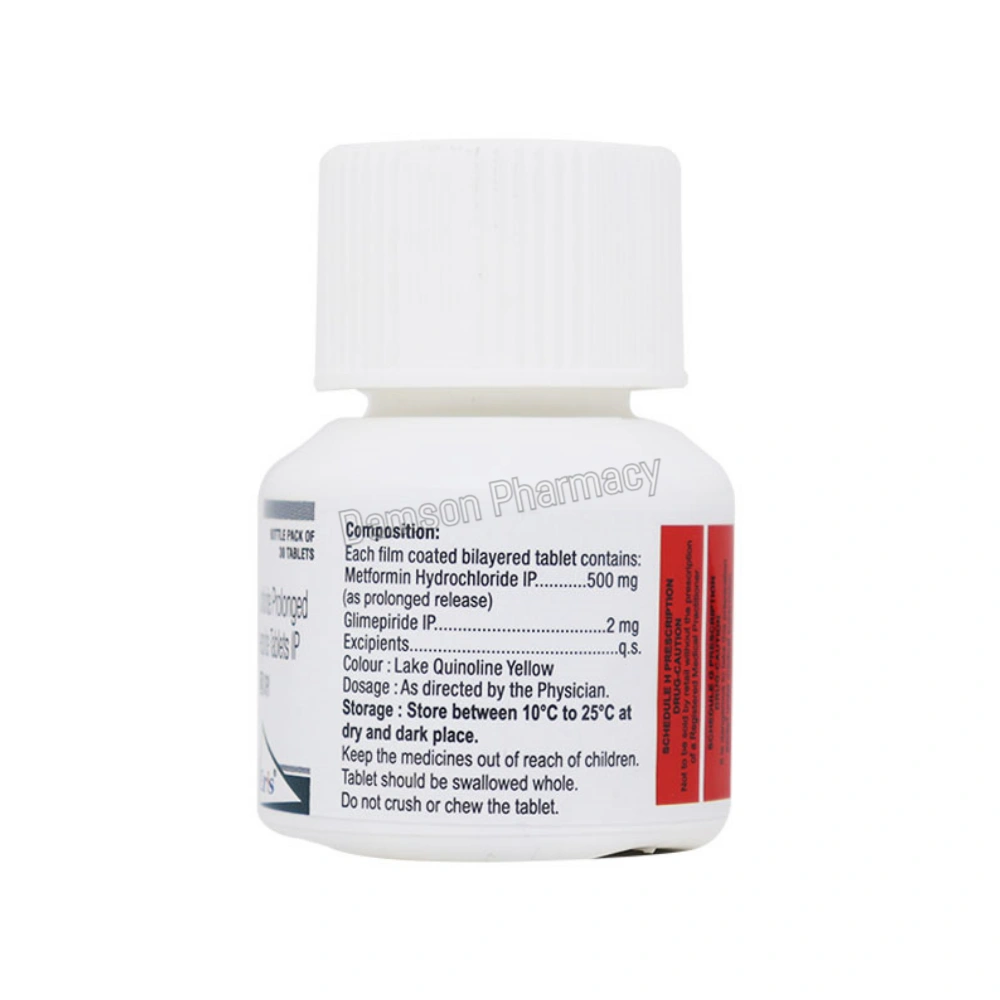
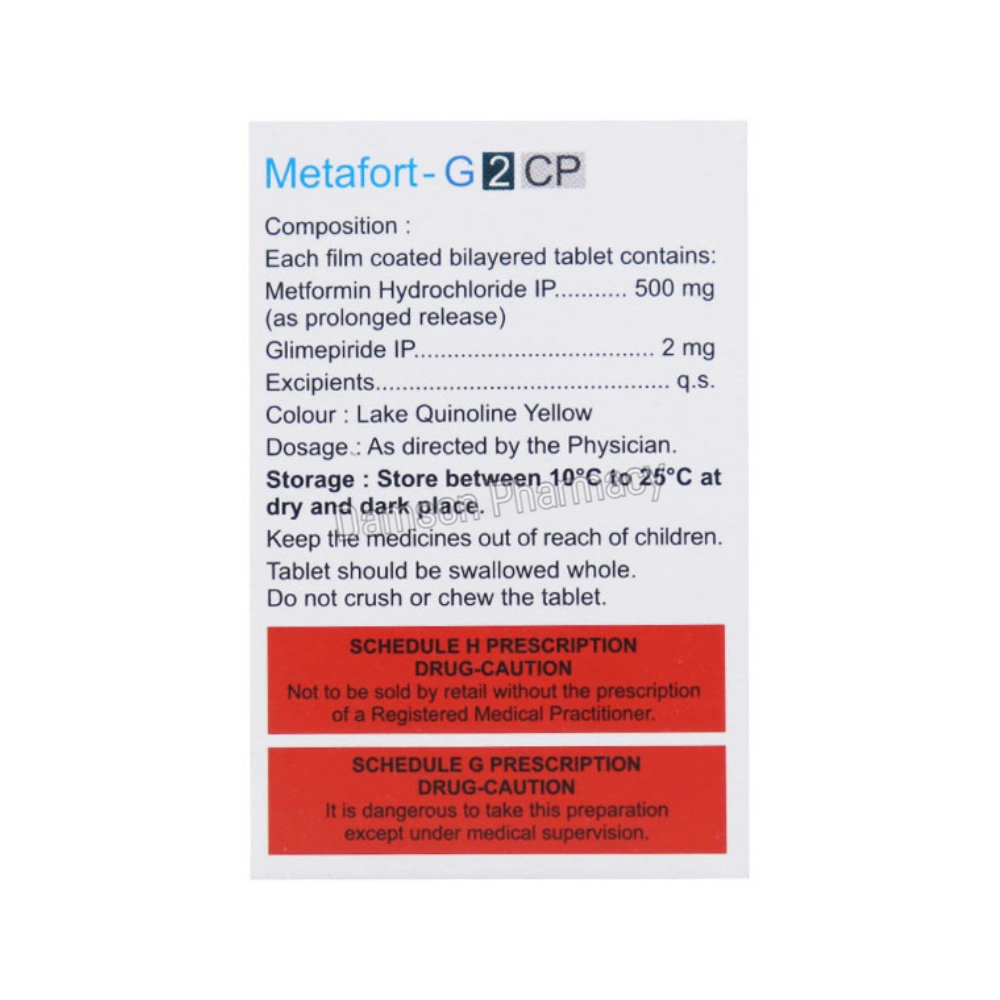




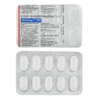


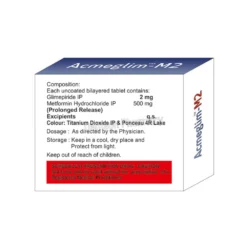
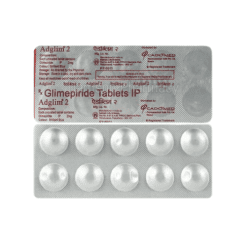



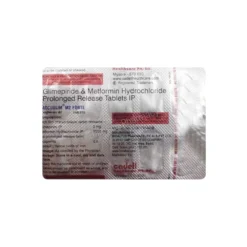
Mars –
Customer service is fantastic and very responsive
Geol Liese –
Quick reply through chat and most of medications are on stock
Yahto –
Exceptional service with prescription deliveries. easy forms to fill in and easy to keep track of when repeats are due. Safely packaged for the postal service
Vinnie Hunter –
I’ve always had positive experiences with ordering from Damson Pharmacy – easy to use website, medicines delivered as promised.
Hillard –
Excellent service – quick delivery – excellent information